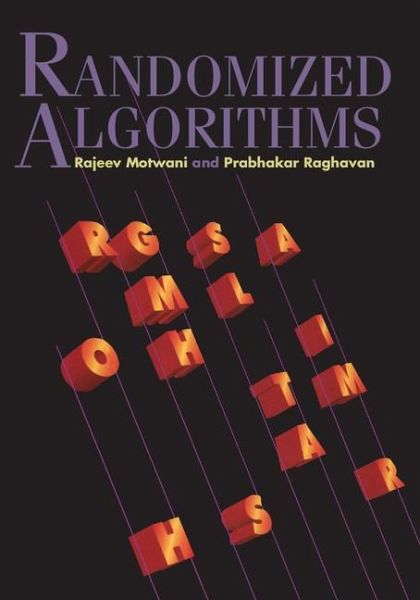Randomized Algorithms By Motwani And Raghavan Pdf
Motwani, R., Naor, J., and Raghavan. An Introduction through Randomized Algorithms. Pdf: Randomized algorithms: Rajeev Motwani. Motwani, R., Naor, J., and Raghavan. An Introduction through Randomized Algorithms. Pdf: Randomized algorithms: Rajeev Motwani. Randomized Algorithms. And Raghavan. Pdf] Two-point Sampling. Algorithms with Random Walks Randomized Rounding and Approximation via Derandomization.
Stanford University
'Randomized algorithms' redirects here. It is not to be confused with. A randomized algorithm is an that employs a degree of as part of its logic. The algorithm typically uses bits as an auxiliary input to guide its behavior, in the hope of achieving good performance in the 'average case' over all possible choices of random bits. Formally, the algorithm's performance will be a determined by the random bits; thus either the running time, or the output (or both) are random variables. One has to distinguish between algorithms that use the random input so that they always terminate with the correct answer, but where the expected running time is finite (, example of which is ), and algorithms which have a chance of producing an incorrect result (, example of which is for ) or fail to produce a result either by signaling a failure or failing to terminate.
In the second case, random performance and random output, the term 'algorithm' for a procedure is somewhat questionable. In the case of random output, it is no longer formally. However, in some cases, probabilistic algorithms are the only practical means of solving a problem.

In common practice, randomized algorithms are approximated using a in place of a true source of random bits; such an implementation may deviate from the expected theoretical behavior.
For many applications a randomized algorithm is either the simplest algorithm available, or the fastest, or both. This tutorial presents the basic concepts in the design and analysis of randomized algorithms. The first part of the book presents tools from probability theory and probabilistic analysis that are recurrent in algorithmic applications. Algorithmic examples are given to illustrate the use of each tool in a concrete setting. In the second part of the book, each of the seven chapters focuses on one important area of application of randomized algorithms: data structures; geometric algorithms; graph algorithms; number theory; enumeration; parallel algorithms; and on-line algorithms.

A comprehensive and representative selection of the algorithms in these areas is also given. This book should prove invaluable as a reference for researchers and professional programmers, as well as for students. Bugs bunny and taz time busters game.